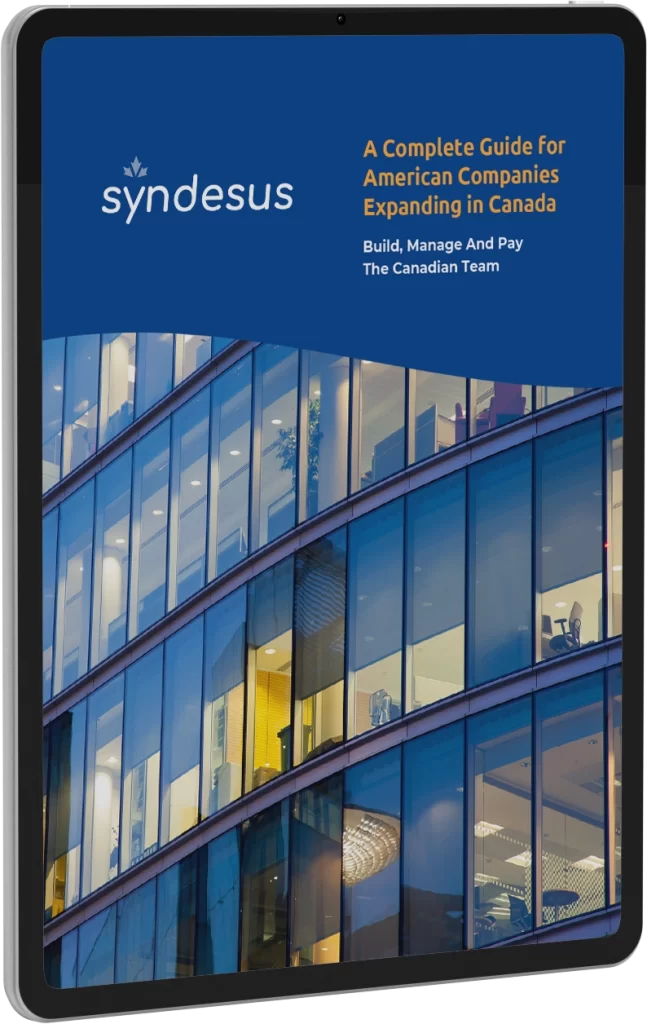The H-1B visa process has become a legal minefield for U.S. employers and skilled workers. Faced with mounting denials, extensive delays, and increased scrutiny, many are turning to litigation as a last resort. But litigation often introduces its own set of challenges—high costs, lengthy timelines, public exposure, and uncertain outcomes. For U.S. companies relying on international talent, the stakes are high: litigation can mean losing critical employees, delaying business goals, and exhausting resources.
A class action lawsuit has challenged the U.S. Citizenship and Immigration Services‘ (USCIS) practice of arbitrarily denying H-1B visa petitions for market research analyst positions. The settlement reached in this lawsuit provides clarity to employers regarding the eligibility of such positions under the Occupational Outlook Handbook, allowing U.S. businesses to request the reopening of their denied petitions based on new guidance from the settlement.
There’s a better way to retain talent without the headaches of H-1B litigation. Canada’s Global Talent Stream (GTS) offers a streamlined and reliable immigration pathway, and with Syndesus, U.S. employers can bypass the complexity of H-1B issues entirely.

Understanding H-1B Visa Denials and Litigation
H-1B visa denials can be a significant setback for both employers and employees, often disrupting business operations and career plans. However, it’s crucial to understand that these denials are not the end of the road. The Administrative Procedure Act (APA) provides a legal framework for challenging decisions made by the U.S. Citizenship and Immigration Services (USCIS) that are deemed arbitrary or capricious. Federal litigation under the APA allows employers and employees to contest these denials, seeking a fair review and potentially overturning the decision. Understanding the reasons behind H-1B visa denials and the role of federal litigation is the first step in navigating this complex landscape.
The Growing Burden of H-1B Federal Litigation
For years, the H-1B program has been plagued by challenges. The annual lottery system leaves countless highly qualified workers without visas. Even for those selected, green card backlogs, increased scrutiny, and procedural errors have created bottlenecks. Recent years have seen a surge in denials for roles deemed by USCIS not to meet “specialty occupation” criteria, such as market research analysts. USCIS erroneously determined these positions, leading to increased litigation. Employers are left with few options beyond litigation, which has spiked as a result. The district court plays a crucial role in handling appeals related to USCIS denials and significant settlements addressing arbitrary denials.
Yet the litigation process is fraught with consequences. Court cases can stretch on for months or years, delaying critical hires. Legal fees add up quickly, and public filings expose sensitive company details. Worse still, there’s no guarantee of success, and some lawsuits are dismissed before they gain traction. The court’s ruling on various motions filed by plaintiffs and the government’s response significantly impacts the progress of these lawsuits and the continuing use of the lottery system for H-1B petitions. These realities make litigation a costly gamble for many employers.
Challenging an H-1B Denial
When faced with an H-1B denial, employers and employees have several avenues to explore. One option is to file a motion to reconsider or a motion to reopen the case, which involves presenting new evidence or arguing that the original decision was incorrect. Another option is to appeal to the Administrative Appeals Office (AAO). However, federal litigation often provides the most effective and efficient resolution. By filing a lawsuit under the APA, petitioners can challenge USCIS’s decision in federal court, seeking a fair and impartial review. This process can be more straightforward and potentially quicker than administrative appeals, making it a viable option for many.
The Role of the Administrative Procedure Act in H-1B Litigation
The Administrative Procedure Act (APA) is a cornerstone of H-1B litigation, offering a structured approach to challenging USCIS decisions. The APA mandates that federal agencies, including USCIS, follow specific procedures when making decisions, such as providing notice and an opportunity for public comment. In the context of H-1B litigation, the APA is used to ensure that USCIS has adhered to these procedural requirements and has made decisions that are fair and reasonable. By leveraging the APA, petitioners can hold USCIS accountable, ensuring that their decisions are not arbitrary or capricious.
Federal Court Litigation: A Viable Option
Taking an H-1B denial to federal court can be a strategic move for employers and employees seeking a fair review. Federal court litigation under the APA offers several advantages, including an impartial review of the case, the opportunity to present comprehensive evidence and arguments, and the potential for a timely resolution. Unlike administrative appeals, which can be prolonged and uncertain, federal court litigation provides a clear pathway to challenge USCIS’s decision. This approach can be particularly beneficial for cases where the denial is based on questionable grounds, such as the misclassification of a job role.
Summary Judgment: A Powerful Tool
In the realm of federal court litigation, summary judgment stands out as a powerful tool for resolving H-1B disputes efficiently. By filing a motion for summary judgment, petitioners can argue that there are no genuine issues of material fact in their case and that they are entitled to judgment as a matter of law. This can expedite the resolution process, providing a quicker path to a favorable outcome. Summary judgment can be particularly effective in cases where the evidence overwhelmingly supports the petitioner’s position, allowing for a swift and decisive resolution without the need for a prolonged trial.
By understanding these aspects of H-1B litigation, employers and employees can better navigate the complexities of the visa process and make informed decisions about how to proceed when faced with a denial.
The Consequences of H-1B Litigation in Federal Courts
When employers turn to the courts, they face challenges that ripple far beyond the courtroom:
- Financial Strain: Legal fees and court costs can drain resources, with no guarantee of a favorable outcome.
- Delayed Hiring: Prolonged court cases mean key roles remain unfilled, stalling projects and growth.
- Public Exposure: Immigration litigation becomes a matter of public record, putting company operations and strategies under scrutiny.
- Uncertain Outcomes: Even with a strong case, litigation doesn’t always lead to victory. Companies must prepare for the possibility of prolonged disputes or unfavorable rulings.
Settlement agreements in H-1B litigation can lead to changes in USCIS adjudication processes, benefiting employers and applicants by correcting previous agency errors and ensuring faster processing times.
For U.S. companies dependent on international talent, the consequences of litigation can be devastating. Voluntary dismissal of legal cases, where plaintiffs withdraw their lawsuits, can also occur, often due to procedural aspects such as plaintiffs being selected in the H-1B lottery, rendering the appeal moot. That’s why more and more employers are looking north to Canada.
Canada: A Practical Solution to H-1B Employment Authorization Challenges
Canada’s Global Talent Stream (GTS) has emerged as a game-changer for U.S. employers seeking a viable alternative to the H-1B visa. Designed for tech workers and other skilled professionals, the GTS offers fast processing times, clear pathways to permanent residency, and access to Canada’s welcoming immigration policies.
Key benefits of the Global Talent Stream include:
- Fast Work Permit Approvals: Processing times are often under two weeks, enabling talent to relocate and begin work swiftly.
- Pathways to Permanent Residency: Workers can gain permanent residency within one to two years, with citizenship attainable in five years.
- Social Benefits: Employees benefit from Canada’s healthcare system and family-friendly immigration policies.
By leveraging Canada’s immigration system, U.S. companies can avoid the pain of H-1B litigation while retaining the talent they need to stay competitive.
Syndesus: Your Partner in Hiring Talent Through Canada with Immigration Lawyers
Syndesus makes it easy for U.S. employers to navigate Canada’s immigration pathways without establishing a Canadian entity. As an Employer of Record (EOR), we take care of the administrative and legal complexities, allowing you to retain your talent without disruption.
Here’s how we help:
- Employer of Record Services: Syndesus acts as the legal Canadian employer for your workers, managing payroll, benefits, HR, and tax compliance while you maintain operational control.
- Immigration Support: We facilitate work permit applications through the Global Talent Stream, ensuring fast and efficient processing.
- Turnkey Solutions: From onboarding to ongoing compliance, we handle the logistics so you can focus on your business.
Whether you’re a small startup or a Fortune 500 company, Syndesus offers tailored solutions to help you retain critical talent and avoid the pitfalls of U.S. immigration challenges.
Retain Talent Without Litigation
By partnering with Syndesus, you can bypass the uncertainty and expense of H-1B litigation entirely. Our expertise in Canadian immigration ensures your workers can transition seamlessly, allowing your business to thrive without interruption.
Canada’s pathways don’t just solve immediate challenges—they offer long-term advantages. Employees who gain Canadian citizenship may eventually return to the U.S. under TN visa agreements or other immigration options, armed with greater flexibility and legal protections.
Contact Syndesus Today
Don’t let H-1B litigation derail your business. With Syndesus, you can retain your top talent, avoid costly delays, and build a stronger, more resilient workforce through Canada.
Contact us today to learn how we can help you unlock the benefits of Canada’s Global Talent Stream and keep your business moving forward.
The content and materials available via Syndesus are for informational purposes only and do not constitute legal advice.

